Clinical management systems not only improve areas like organisational process and clinical efficiency, they also contribute towards stronger, more effective internal communication.
Strong communication within aged care settings is critical to ensuring the resident is receiving the best possible care, and that all caregivers and related parties (allied health, friends and family), are kept up to date at all times.
A good clinical system can enhance communication in the following ways:
Centralisation
In a digital clinical system like AutumnCare, information is accessed and shared from one central platform.
Each resident has one central folder, within which all their clinical, medical and lifestyle information is stored. This ensures that, unlike in paper systems, nothing is missed when a resident's record is being reviewed.
Features like Interactive Handover and the Dashboard provide a single view of critical clinical information pertaining to all resident's across the entire facility.
Interactive Handover shows care staff all relevant Case Notes at the beginning of a shift, ensuring they are equipped with the information they need that day.
The Dashboard displays important metrics at a glance, allowing Managers to investigate issues such as Care Plans not reviewed, or resident's with no notes for 3 days.
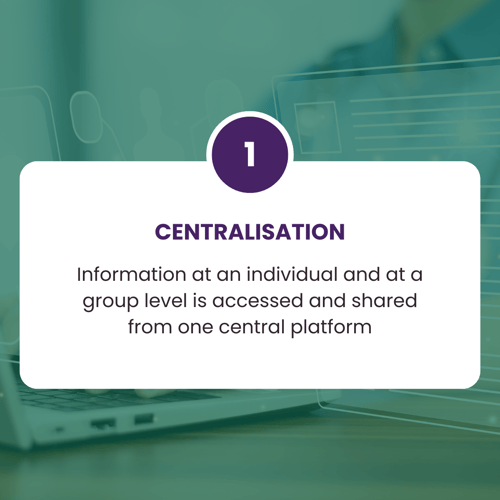
Collaboration
Caregivers (including allied health specialists and GPs) can simultaneously access records and contribute information within a digital clinical system.
This provides a well-rounded, complete picture of the care that is being received by the resident, which can assist in clinical decision making.
To ensure everybody is able to contribute to the system in a simple and straightforward way, AutumnCare provides a features known as Snippets.
Snippets help to account for linguistic differences amongst care staff, by allowing template phrases and notes to be saved and inserted into relevant Case Notes.
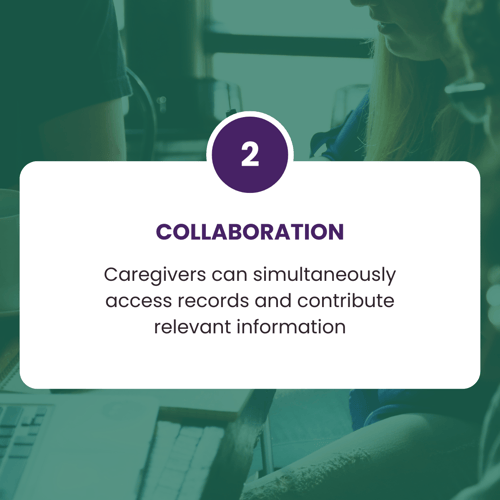
Real time updates
Unlike in paper systems, digital clinical systems such as AutumnCare can provide updates to other care staff in real time.
These updates can be shared through a range of communication features, including Messages, Tasks and Appointments.
Changes to assessments and other areas of a resident's record are also shared with others as soon as they are saved. This ensures that staff are providing care based on accurate, up to date information which is critical to resident safety.
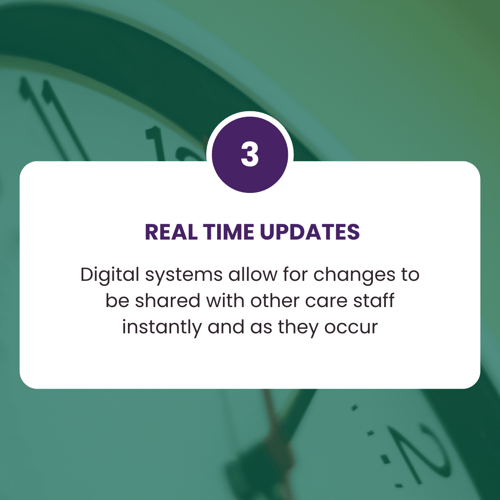
Reduced duplication and errors
In digital clinical systems, information only needs to be entered once, rather than over and over again. This greatly reduces the potential for transcribing errors to occur.
AutumnCare utilises single instance questions within clinical assessments.
Single instance questions are answered once and then automatically populated wherever else this question appears throughout the system.
This creates efficiency for care staff, as they don't need to re-enter details like names, DOB, gender etc. each time they complete a new assessment. This also prevents issues arising where different forms contain different answers to the same question.
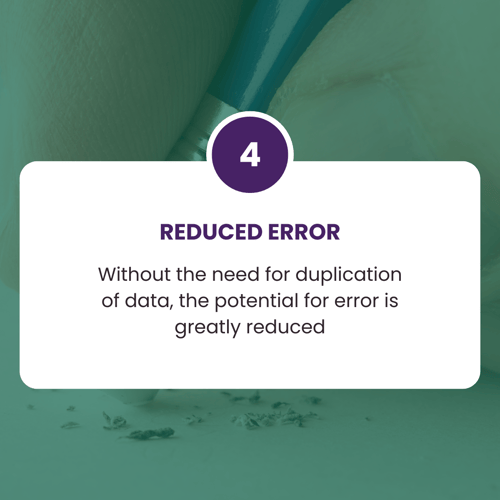
Access to historical information
Within a digital system, entire patient and medical histories can be accessed and shared in an instant, ensuring that care staff are able to make informed decisions.
Running a pre-built report is an efficient way to retrieve all information relating to an area such as missed medications, PRN medications administered, falls occurring across the facility, the number of active wounds across the facility, resident's on a psychotropic medication etc.
This can be incredibly powerful data for compliance, continuous improvement planning, and for GPs when prescribing medications for their patients.
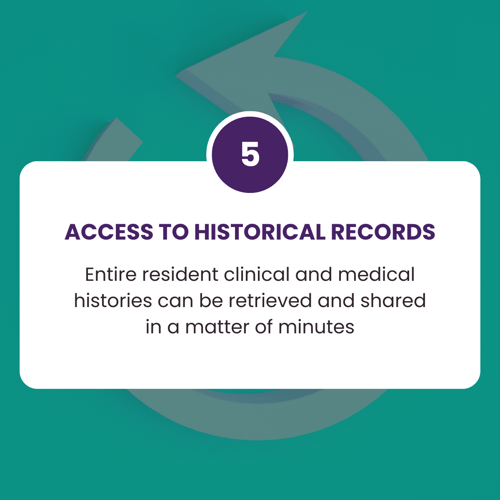
Are you interested in finding out how a digital clinical system can improve communication at your organisation? Want to see any of the features above in action?
Head on over to book an obligation-free demo of AutumnCare!